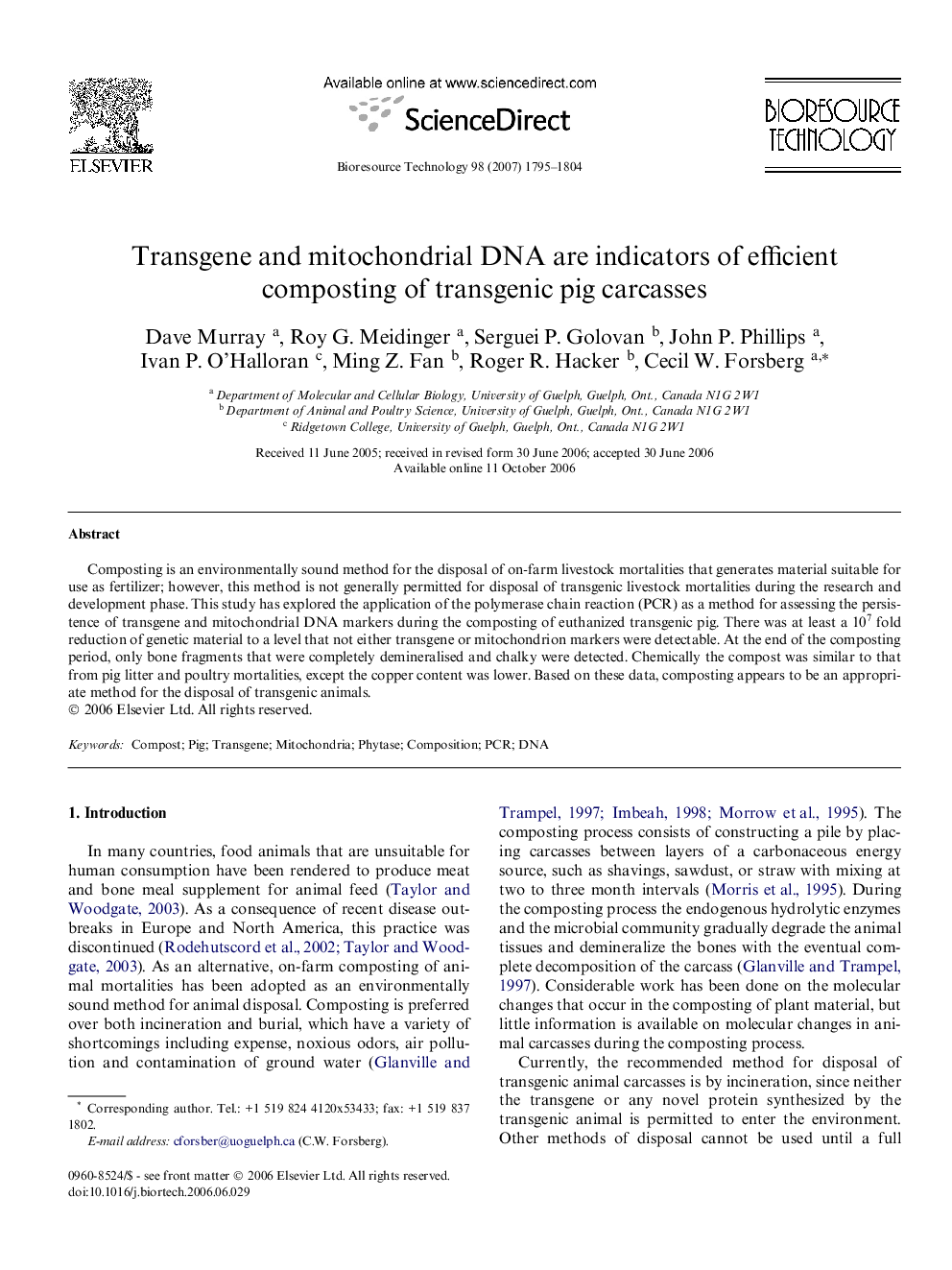| Article ID | Journal | Published Year | Pages | File Type |
|---|---|---|---|---|
| 686495 | Bioresource Technology | 2007 | 10 Pages |
Composting is an environmentally sound method for the disposal of on-farm livestock mortalities that generates material suitable for use as fertilizer; however, this method is not generally permitted for disposal of transgenic livestock mortalities during the research and development phase. This study has explored the application of the polymerase chain reaction (PCR) as a method for assessing the persistence of transgene and mitochondrial DNA markers during the composting of euthanized transgenic pig. There was at least a 107 fold reduction of genetic material to a level that not either transgene or mitochondrion markers were detectable. At the end of the composting period, only bone fragments that were completely demineralised and chalky were detected. Chemically the compost was similar to that from pig litter and poultry mortalities, except the copper content was lower. Based on these data, composting appears to be an appropriate method for the disposal of transgenic animals.
